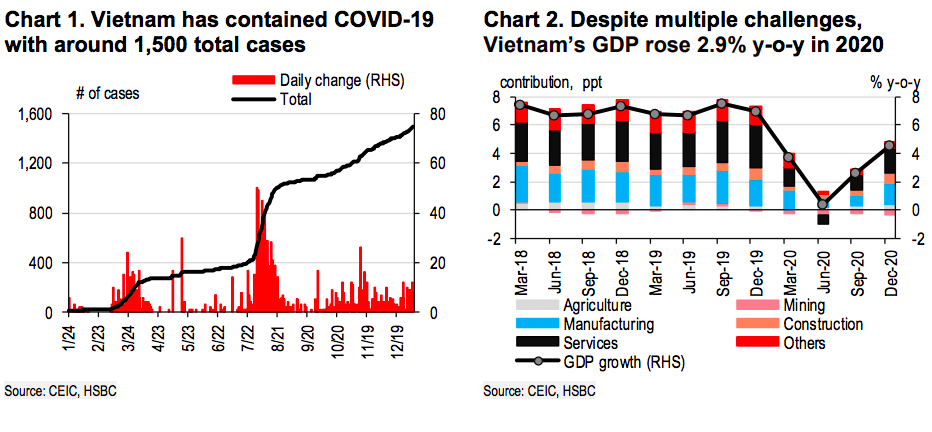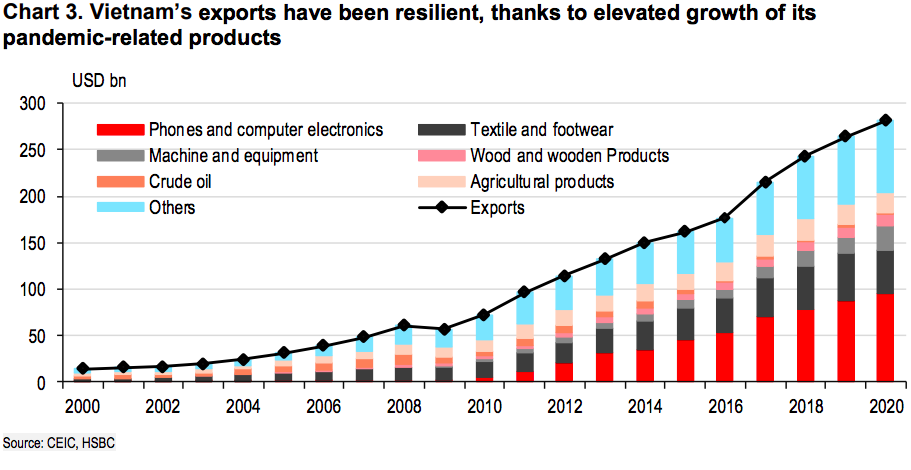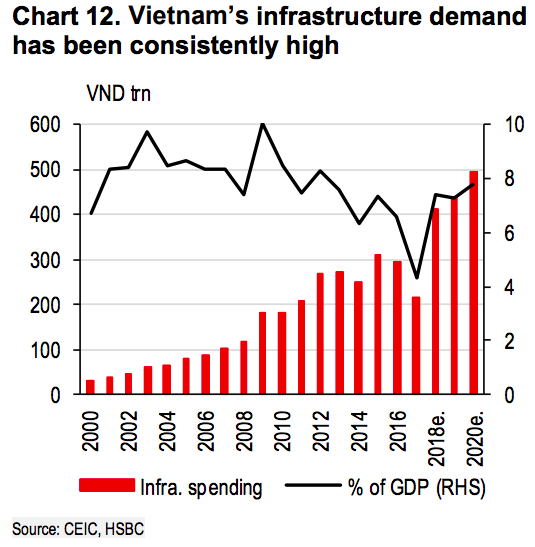Vietnam economy to enjoy a rosy 2021: HSBC
Thanks to its successful Covid-19 containment, Vietnam saw one of the highest GDP growth rates in the world in 2020.
While many headwinds still linger, Vietnam’s economic outlook for 2021 remain bright with an estimated GDP growth of 7.6%, as the country will benefit from numerous FTAs, consistent FDI inflows and a tech-led recovery, stated the HSBC in its latest report.
“Despite unprecedented challenges in 2020, Vietnam’s economy has shown remarkable resilience,” stated the HSBC.
The country is one of the few economies to clock in positive growth at 2.9% - thanks to confluence of positive factors including successful early virus containment, quick resumption of work and booming electronics exports.
On the external front, Vietnam’s trade in 2021 should benefit from multiple free trade agreements (FTAs) it signed in 2020, including EVFTA, RCEP and UKVFTA, noted the bank.
“Lower tariffs and greater access to major markets will give a comparative advantage to Vietnamese exporters and help diversify their export destinations, while FDI inflows should continue, as the country remains an attractive investment spot,” it added.
Issues needed to address
One of the key issues that Vietnam would face is foreign economic relationships, particularly with China and the US, the country’s two trading partners.
China has not only become Vietnam’s largest trading partner, but is an important investment partner, becoming the second largest source of FDI in recent years. While Vietnam’s economy has been interlinked with China, the country has also sought to strengthen ties with other major economies, the US, the EU, Japan and Korea.
HSBC’s report also suggested Vietnam needs to navigate its relations with the US under President-elect Biden to ensure a more balanced and sustainable trade relations.
On the domestic front, HSBC pointed to infrastructure development as a key issue, as it was listed as one of the key economic tasks in the 1st government resolution of 2021.
While there have been delays in major transportation projects, the report noted the long-anticipated Public Private Partnership (PPP) law that was passed in 2020 and has come into effect in early 2021 could be handy in solving lingering issues concerning private investors and encourage their participation in mega projects.
Another key focus is the privatization/equitization of state-owned enterprises (SOE). During 2011-15, almost 600 SOEs were equitized, meeting 96% of the target. However, the process has stalled significantly since 2016. From 2016 to September 2020, only 37 out of 128 SOEs were equitized, less than 30% of the target.
While the pandemic partly played a role, factors such as auditing and land management may have slowed the process.
Meanwhile, the Ministry of Finance is working on a SOE restructuring plan of 2021-25, which could turn into a more detailed roadmap in the upcoming 13th National Party Congress, it added.















